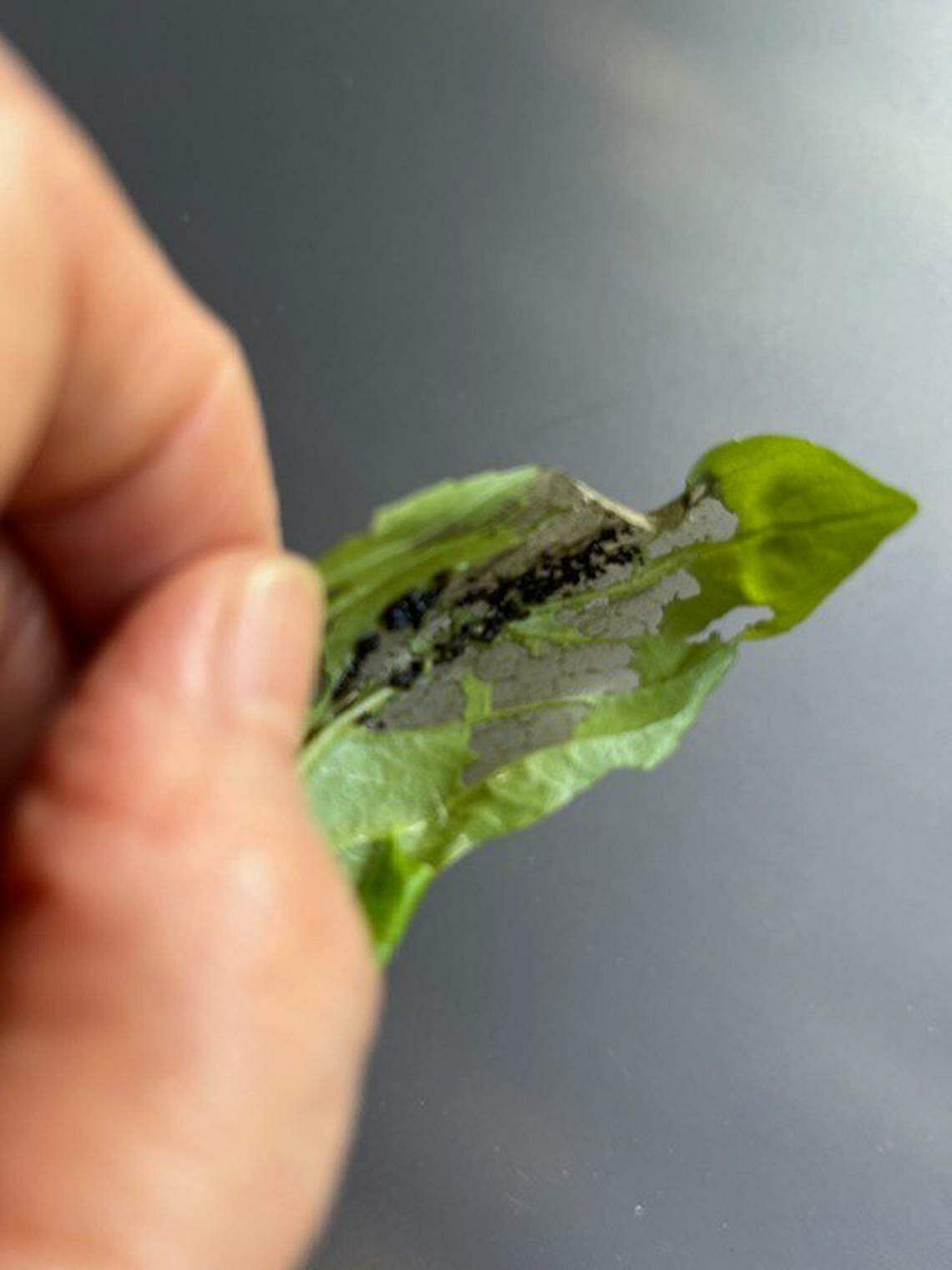Succulent needs more sunlight and a well-draining mix
Why are the leaves of this succulent wilting? Am I watering too little or too much? Or does it need more sunlight?
Seng Zhi Yun
Succulents need at least six hours of direct sunlight a day to thrive, or they will take on a stretched, lanky appearance.
Although these are drought-tolerant plants, do not let them remain dry for extended periods, lest they abort and shed leaves. Water them thoroughly but periodically; water again only when the growing mix has just turned try.
Finally, to prevent rot, grow your succulents in a gritty, well-draining mix. Succulents in the tropics will rot if grown in a moisture-retentive mix that does not dry out fast enough. Incorporate aggregates such as fine expanded clay pellets, pumice or akadama to improve drainage and aeration.
Philodendron’s leaves may be infected

Why does my philodendron have yellow spots on the leaves? It is usually on the living room coffee table and is sunned once a week.
Chew Huck Chin
The spots could be due to fungal or bacterial disease. In an indoor environment with a lack of air circulation and sunlight, plants generally have poor health and are more susceptible to disease.
Expose your plant to more sunlight or install grow lights connected to a timer. Make sure it gets air circulation to keep the leaves dry and spray it with preventive fungicide, which you can buy at local nurseries, to prevent disease.
Alternatively, did you spray the leaves with a chemical? Chemicals and even water-soluble fertiliser can injure leaves and cause them to develop spots. Always test a new product on a small part of the plant before spraying the rest of it.
Bag developing fruit to prevent infestation

We cut open this melon and found maggot-like insects. What caused this and how can I prevent it?
Adrian Ling
The maggots could be fruit fly larvae. Always bag young fruit during development, as the bags will prevent adult fruit flies from laying eggs in the fruit.
You can also buy or make your own fruit fly traps, such as with a plastic bottle. Use pheromones inside the trap to attract the flies.
Lemon plant flowers seasonally

My lemon plant does not seem to flower or fruit even though I fertilise and water it regularly. How can I get my plant to bear fruit?
Lim Yang Soon
The lemon plant requires at least six hours of direct sunlight daily to thrive. Avoid over-fertilising it with fertilisers high in nitrogen, as this will promote the growth of foliage over flowers and fruit.
Some of the plant’s leaves look chlorotic (yellow or blanched), which is a sign that your plant lacks nutrients. Check the pH level of your soil and ensure the plant is not waterlogged.
Lemon plants need slightly acidic soil to grow well. Unsuitable soil will prevent a plant from taking up nutrients properly and impede healthy root development.
If there is too much heavy clay in the soil, make it more aerated and well-draining by adding high-quality compost and fine aggregates.
Grow basil under protection

I have not been able to get a good crop of basil because of what seem to be caterpillars. I spray the plant with neem oil every week without success. I have checked at night, but cannot find moths. What can I do?
Cheah Chew Ping
One chemical-free method that you can try is growing your basil plants under cover. You can erect a cage with a fine white netting to stop moths from laying eggs on the leaves.
You can also opt for a highly selective pesticide called Dipel, which will kill the young caterpillars that eat the leaves. Thorough coverage of the plant is essential for adequate control of the pest.
- Answers by Dr Wilson Wong, an NParks-certified practising horticulturist and parks manager. He is the founder of Green Culture Singapore and an adjunct assistant professor (Food Science & Technology) at the National University of Singapore.
- Have a gardening query? E-mail it with clear, high-resolution pictures of at least 1MB, if any, and your full name to stlife@sph.com.sg. We reserve the right to edit and reject questions.

